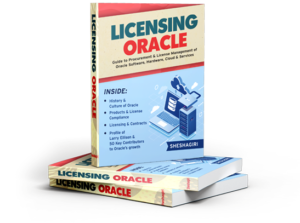Understanding Oracle Java License and Navigating Oracle License Audits
Body
Oracle Java has been a staple in enterprise software development for decades, powering applications across various industries. However, organizations using Oracle Java must be aware of the licensing changes and the potential challenges posed by Oracle License Audits. This article explores the Oracle Java License and provides insights on how to navigate Oracle License Audits effectively.
The Evolution of Oracle Java License
Oracle made a significant shift in its Java licensing model starting in 2019. Prior to this, Java Standard Edition (SE) was free for personal and commercial use under the Oracle Binary Code License Agreement. However, Oracle introduced a subscription-based licensing model, requiring businesses to pay for using Java SE in commercial environments.
This shift caught many organizations off guard, leading to unexpected costs and compliance concerns. Companies using Oracle Java now need to purchase a Java SE subscription to receive updates, security patches, and support. Failing to adhere to Oracle’s licensing terms can lead to financial penalties and non-compliance risks during Oracle License Audits.

What Triggers an Oracle License Audit?
Oracle has a reputation for conducting software license audits to ensure compliance with its licensing policies. An Oracle License Audit is a formal review conducted by Oracle’s License Management Services (LMS) to verify that a company is using Oracle software, including Java SE, according to its licensing agreement.
Common triggers for an Oracle License Audit include:
- Software Usage Expansion: If an organization expands its IT infrastructure and increases the usage of Oracle Java, Oracle may initiate an audit to confirm that additional licenses have been acquired.
- Merger or Acquisition: Business changes such as mergers and acquisitions often lead to license audits as Oracle seeks to ensure compliance under the new corporate structure.
- Lack of Subscription Renewal: If an organization does not renew its Java SE subscription, Oracle may scrutinize its usage to ensure there is no unauthorized access to updates and security patches.
- Routine Compliance Checks: Oracle performs random audits as part of its ongoing compliance initiatives to maintain control over software licensing.
How to Prepare for an Oracle License Audit
Preparation is key to successfully handling an Oracle License Audit. Organizations should take proactive steps to ensure compliance and mitigate potential risks.
1. Understand Your Oracle Java License Agreement
Before an audit occurs, businesses should thoroughly review their Oracle Java License agreements. Understanding the terms, limitations, and requirements of the licensing agreement can prevent unexpected surprises during an audit.
2. Conduct Internal License Audits
Companies should regularly perform internal license audits to assess their Java SE usage. By identifying potential compliance issues in advance, organizations can take corrective actions before Oracle initiates a formal audit.
3. Maintain Accurate Records
Having detailed records of software installations, license purchases, and subscription renewals is crucial. Organizations should document their use of Oracle Java and ensure that all deployments align with the licensing agreement.
4. Limit Unnecessary Deployments
Uncontrolled installations of Oracle Java can lead to non-compliance. Businesses should implement policies to restrict Java SE deployments only to environments where it is necessary.
5. Engage with Oracle Licensing Experts
Navigating Oracle License Audits can be complex. Consulting with Oracle licensing experts or legal professionals can help organizations interpret their licensing agreements accurately and respond effectively to audit requests.
Steps to Take During an Oracle License Audit
If your organization receives an Oracle License Audit notice, follow these steps to ensure a smooth process:
1. Review the Audit Request Carefully
Oracle will provide a formal audit notification outlining the scope of the audit. Carefully review the request and clarify any ambiguities before responding.
2. Appoint an Internal Audit Team
Designate an internal team responsible for handling the audit. This team should include IT, legal, and procurement professionals to oversee data collection and communication with Oracle.
3. Gather Relevant Documentation
Compile all relevant licensing agreements, invoices, and software deployment records. Ensure that all documentation aligns with Oracle’s licensing policies.
4. Verify Software Deployments
Conduct a thorough review of your organization’s Oracle Java installations to identify any unlicensed usage. If discrepancies are found, take corrective actions before submitting data to Oracle.
5. Respond Strategically
When responding to Oracle, provide only the necessary information requested. Avoid sharing excessive data that may lead to further scrutiny.
6. Negotiate if Necessary
If Oracle identifies non-compliance, organizations should explore negotiation options. In some cases, companies can work out settlements or adjust their licensing agreements to minimize financial impact.
Alternatives to Oracle Java SE
Given the costs and compliance requirements associated with Oracle Java License, many organizations are exploring alternative Java distributions. Open-source Java distributions such as Adoptium (Eclipse Temurin), Amazon Corretto, Azul Zulu, and OpenJDK provide free and commercially supported options that do not require Oracle subscriptions.
Organizations that want to reduce licensing risks while maintaining Java compatibility should evaluate these alternatives and determine the best fit for their business needs.
Conclusion
Understanding the complexities of the Oracle Java License and being prepared for Oracle License Audits is essential for businesses relying on Oracle software. By staying informed, conducting internal audits, and maintaining proper records, organizations can avoid compliance issues and unexpected costs. Additionally, considering alternative Java distributions can provide greater flexibility and cost savings in the long run.
Proactive license management is the best defense against Oracle’s strict audit practices. Businesses that take licensing compliance seriously will not only avoid penalties but also ensure uninterrupted operations with their Java applications.











Comments